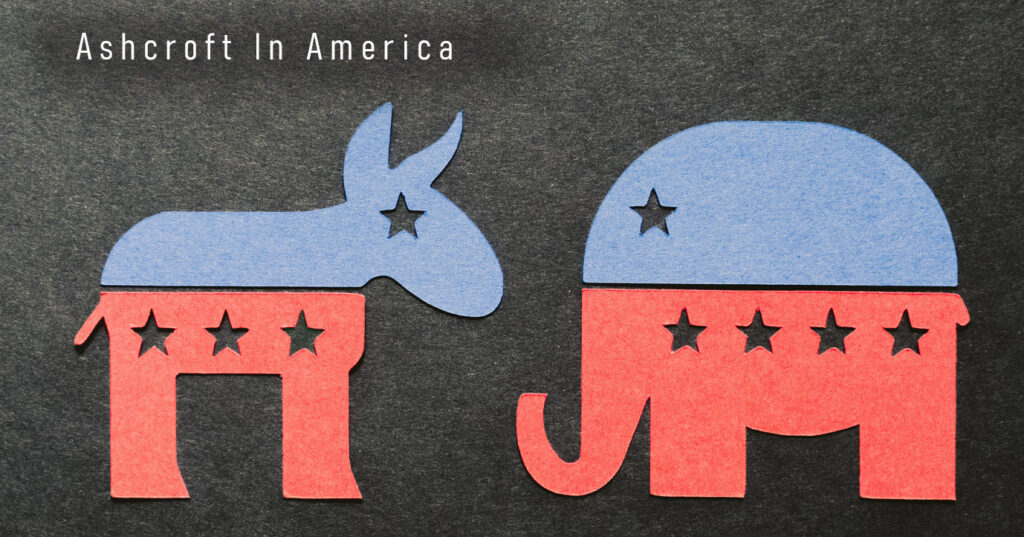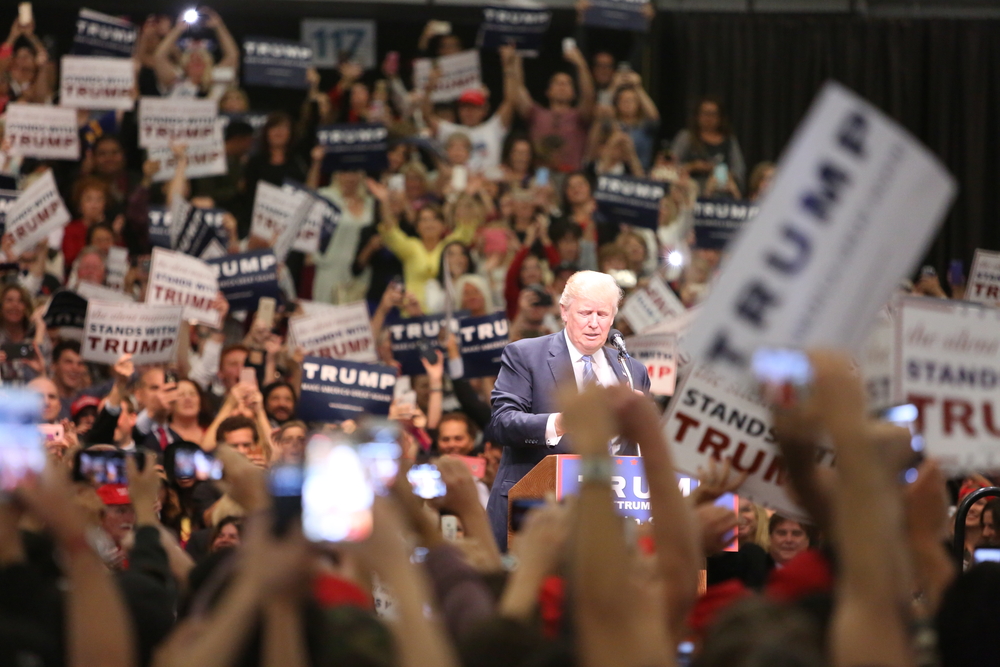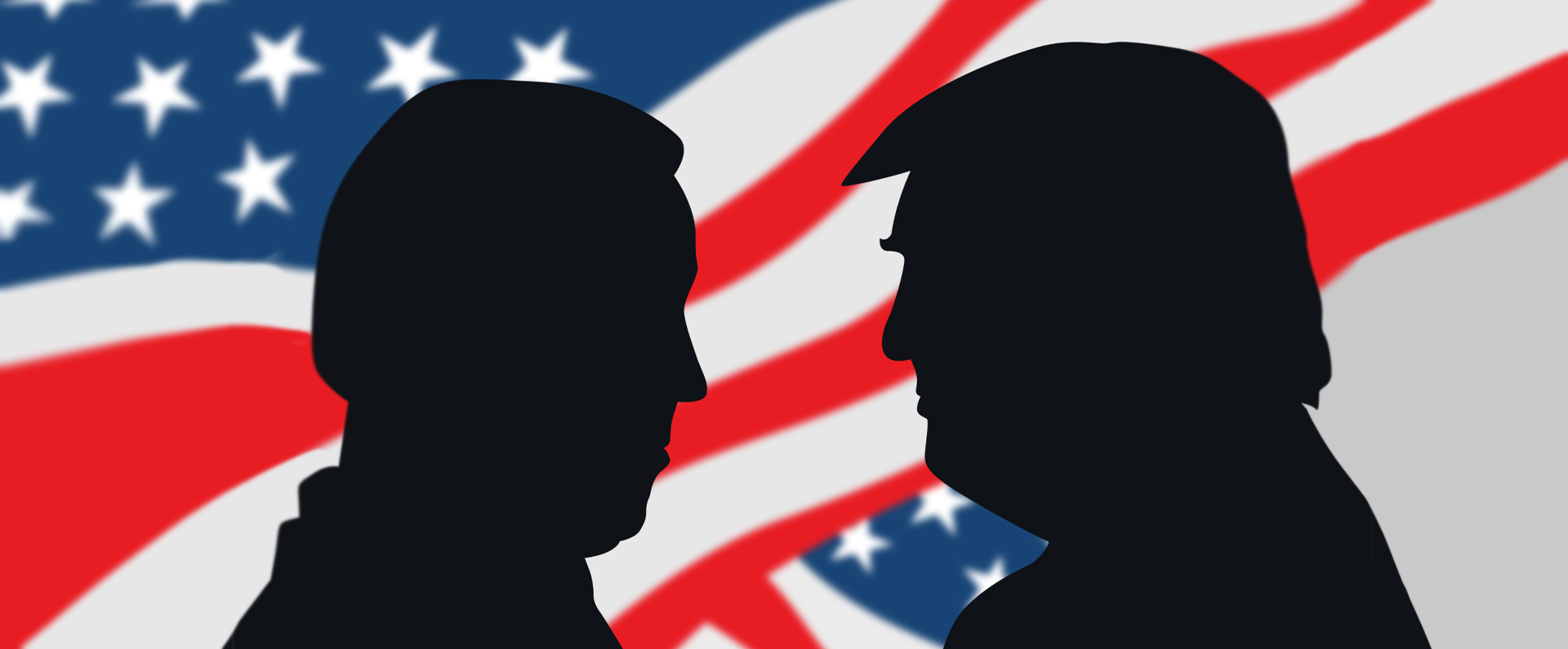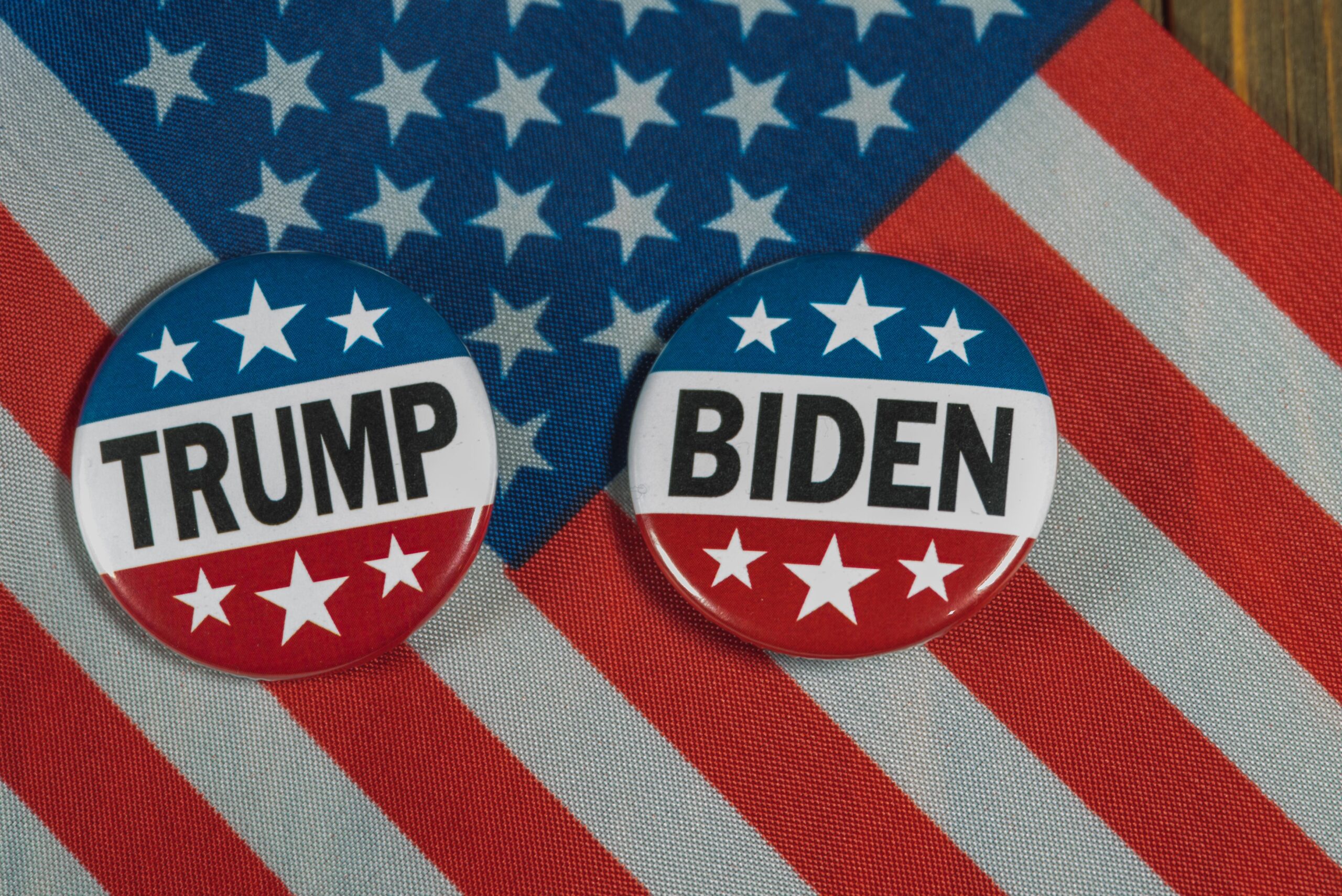
Click here for the new episode of the Ashcroft In America podcast.
On a tour of critical states in a presidential election, it may seem eccentric to begin in a place which has been carried by the same party every time since 1984. The last Republican candidate the people of Wisconsin voted to send to the White House was Ronald Reagan. But there is a good reason to be here: Donald Trump’s campaign believes Wisconsin lies squarely on their path to victory. If he can hold onto all the states Mitt Romney won four years ago – plus the Midwest and Rustbelt states of Pennsylvania, Ohio, Michigan and Wisconsin – he will reach the magic number of 270 votes in the electoral college, and we will be welcoming President Trump. We thought we had better find out what is going on here.
To do so, the Ashcroft In America team have come to Green Bay (or Titletown, as locals have rechristened the place in honour of the Packers, whose thirteen NFL championships amount to the second highest total for any American city). Reince Priebus, Chairman of the Republican National Committee and a Wisconsin native, told me it was the right place to start: though sometimes forgotten among politicians, it was a bellwether for the state: “It’s the type of county, and it’s divided in such a perfect way, that if you do well in Brown County [in which Green Bay sits], you’re going to win the state.”
(The Chairman had further advice. “Make sure you get some cheese curds. If they don’t squeak in your mouth then they’re not good cheese curds.” Cheese curds, it turns out, are deep fried in batter and quite delicious. Enjoy as part of a balanced diet.)
All about that base
One of the intriguing things about Wisconsin in this election is that Donald Trump and Hillary Clinton lost their respective primaries here by thirteen points: Trump to Ted Cruz, and Clinton to Bernie Sanders (the second time she had taken a battering here, having lost heavily to Barack Obama in 2008). Clearly, neither side’s supporters are much inspired by their nominee. This matters, since the ability to turn out the base and get them knocking on doors makes all the difference in a tight election.
Despite backing a succession of Democratic candidates for president, Wisconsin’s governor, the state government and most of its Congressional delegation are Republicans. Craig Gilbert, Washington Bureau Chief of the Milwaukee Journal Sentinel, told us this was because presidential contests effectively brought out a different electorate. “Republican voters in Wisconsin turn out at very high rates, they tend to turn out in most elections whether it’s a mid-term or a presidential.” But when it comes to the presidency, “the turnouts are bigger, the electorates are a little bit more diverse, a little bit younger, a little bit less conservative, and it’s hard for Republicans to compete with these big, giant Democratic margins in the largest cities in the state, Madison and Milwaukee.” There are more Democrats than Republicans in Wisconsin, “but the Democrats don’t always turn out”.
This time, it is hard to judge which party will be more damaged by its supporters’ lack of enthusiasm. Trump’s heavy defeat in April came at a time when he was pulling away from the rest of the field nationally. “There were some local factors that went into that,” Gilbert explained. “I think his flamboyant and polemical style doesn’t necessarily play very well here.” Moreover, Trump’s worst numbers with Republican voters are in the most Republican parts of the state. To compete, the GOP needs landslide victories in the suburban counties around Milwaukee, but “he has not been running away with it in this region. There is a lot of mistrust of him politically, of his consistency and commitment to conservative ideas and principles. There is also just a lot of nervousness about his political style. These are somewhat more educated, somewhat better off Republican voters but they’re very conservative, they’re not like the suburban voters outside of Philadelphia. And he is facing a huge challenge with these voters. There’s a lot of undecided Republicans in that part of the state.”
Reince Priebus was confident that Republican voters were returning to the fold, and would continue to do so. One issue above all would motivate them: “People really don’t want a liberal Supreme Court. The Supreme Court nominations, in our country, are appointed by the President. The President appoints the people who have, unfortunately, a greater say over the direction of a lot of our laws and the path that we’re taking, as a country, than even the legislature… This is nothing to play around with. It’s not a matter of a four-year Presidency, it’s a forty-year change in laws across our country. That gets to the heart of what will bring a Republican back to Donald Trump, if they’re not on board already.”
Hillary, too, could struggle to turn out Democrat voters in the numbers achieved in the state by Barack Obama. Eric Genrich, who represents Green Bay in the Wisconsin legislature and endorsed Bernie Sanders in the primary, told us his appeal in Wisconsin had been “a very compelling and ambitious agenda for working class people who have seen an erosion in their livelihood in the last thirty years.”
Nevertheless, as things stand, Craig Gilbert noted that there were “about three times as many undecided registered voters in Wisconsin as there were four years ago in the race between Barack Obama and Mitt Romney. And most of those voters dislike both candidates.”
The change candidate
When I spoke to him, the RNC chairman was upbeat about his candidate’s chances, but acknowledged that Donald Trump’s strengths were also the things that made people nervous about him. The difference between now and 2012, when President Obama defeated Mitt Romney, was that “people want the change product. Now it’s up to us and Donald Trump to show the American people that it’s a safe product to purchase. If Donald Trump can show the American people that it’s a safe product to purchase, he will win easily because he is the change candidate. If they get comfortable with it, he wins.”
One reason the GOP has had a hard time winning presidential elections is that “we have failed to read and play the culture the right way… Donald Trump understands the culture and he plays to the culture in America.”
That is one way of putting it. Another, his critics would say, is that Trump’s message is all about fear and anger. But the Chairman is not apologetic. “I think people are fearful and people are angry. Part of understanding the culture in America I talking to people about things that they’re feeling.” People worry about the future, the economy, terrorism, an unsecure border. “Whether that’s playing on fear and anger, it’s just what we think. People are very concerned.”
Our first set of focus groups certainly bore this out. People leaning towards voting for Trump talked about a welfare system that punishes work, lax immigration controls threatening national security and the American way of life, erosion of their freedoms, a fragile economy and distorted priorities. Though Trump would not be able to solve any of these in an instant, he represented the only chance at this election to change direction. Though he lacked political experience (an attraction for many) he would not be afraid to ask for advice, and if (as some thought) he “needs etiquette classes”, the upside would be a President who tells it as it is.
Just as important for these voters, Donald Trump was not Hillary Clinton. The standard criticism was that she seemed entitled, greedy, and acted as though it was “her turn” to be President. But it didn’t stop there. More than one of our otherwise mild-mannered Wisconsin participants described her as “evil”, and people were strikingly ready to believe that (in no particular order): the pneumonia story was a ruse and that she actually has Parkinson’s or something at least as serious; that one of her bodyguards is really her neurologist; that she has had people killed; and that she talks to the dead.
Stars directing our fate
Margaret Hoover, a political strategist and commentator on CNN, told me that millennials – voters aged under 35 – hold the GOP’s fate in their hands. “If the Republican Party can’t begin to understand who they’re talking to and then, not adjust their principles but prescribe policies that mean something to a new group of Americans, they’re not going to win.” As it is, among this generation “the lack of enthusiasm for either Hillary Clinton or Donald Trump in 2016 is stark.”
It was not hard to see why, she told me. “They’re 40 per cent non-white, the largest minority group are Hispanics, 20 per cent of them have an immigrant parent. Building a wall isn’t probably the best way to approach that generation. Even if you do care about having an immigration policy that is fair and robust and treats everybody equally, to start the conversation with building a wall isn’t going to open ears, hearts and minds.”
One issue in particular, for Hoover, stands out to this generation. “The social issue that really is like a gateway drug for young people is how a party and how a candidate treats their LGBT friends and family members.” This had become a bellwether for millennials: “If you want to make a policy argument or win a political fight, you don’t have a chance if you’re not going to offer their friends the same freedoms they have.” State Representative Eric Genrich echoed this, adding that affordable higher education, healthcare, and climate change were big motivating issues for younger voters.
Much of this was reflected in our focus groups of Green Bay millennials. Some were finding life tough, particularly when it came to paying for things like health insurance (a problem which many were inclined to blame on President Obama). In these groups, though, people still valued the freedoms and opportunities America had to offer, and there was more optimism than despondency: “I feel like the American dream is still very much alive and if you work hard, it does pay off.” Some strongly resented Donald Trump’s message that things in America were worse than ever (“slavery, the Civil War, the Great Depression?”) As one said: “I hate Trump’s slogan that America is not great. I think America’s always been great. It still is, but we have problems.”
As for the choice at hand, few could summon any enthusiasm for any candidate: “I feel like I’m in The Truman Show. I can’t fathom the fact that we got here as a nation, where my choices are what I consider to be terrible and ridiculously terrible.”
Early days…
If a poll is a snapshot not a prediction, the same applies in spades to a set a focus groups. But there is something eerily familiar about some of the themes from our first week of research. Many people want a new direction, and seem prepared to accept the risks that they know go with it. Those who want change appear more motivated than those who would rather keep the status quo. And it is hard to see what new information will help people decide between the two. Now, where have we heard that before?


